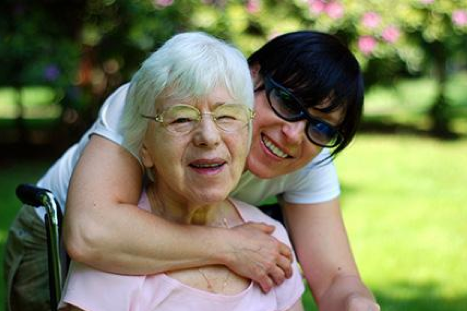
Five Helpful Tips for Caregivers
Spending an average of 20 hours per week, more than 65 million people provide care for a chronically ill, people with disabilities or aging friend or family member each year. For these individuals, caregiving can prove to be a rewarding opportunity, however there are many challenges they must face along the way. If you provide care for a person with a disability, here are some important things to keep in mind in order to ensure your own well being.
Ask for and accept help when you need it. As anyone can attest to, when one thing goes awry, other things can follow. Sometimes caregiving can become an overwhelming task and your to-do list will seem infinite. If you feel the stresses of your responsibilities becoming too heavy a weight, don’t hesitate to ask others for help. There might be other family members or friends willing to take your loved one to their appointments or even prepare meals in advance for them.
Do the best you can and don’t give in to guilt. Understand that there will be situations you won’t be able to fix or undo. Focus on what you are able to provide, and push aside feelings of inadequacy.
Seek social support and get to know other people in your position. Local and online support groups can be an amazing resource for meeting other, often experienced, caregivers able to provide encouragement and advice. Maintaining social and emotional connections can significantly improve your ability to manage the stress associated with caregiving.
Be willing to learn. Organizations such as the Red Cross offer courses on caregiving and there are countless online resources designed to teach you more about the particular condition your loved one is facing. An educated approach to caregiving can benefit both you and the ones you care for.
Take care of yourself as you do your loved ones. It’s important not to put your own health and well being aside when caring for a person with a disability. Make sure you’re seeing your doctor as often as it is recommended and stay on top of any concerns or symptoms you may be experiencing. Make it a point to get a good night’s sleep as often as possible and consume a healthy, balanced diet.
Are you a caregiver for a person with a disability? Do you have any recommendations for others in the same position? Share your insights with us on Facebook and Twitter!
The National Mobility Equipment Dealers Association (NMEDA) is an advocate for mobility and accessibility for drivers with disabilities. If you need help with converting or buying a handicap accessible car, truck or van, please consider one of our mobility equipment dealers.
** This post was originally published on https://nmeda.com/tips-for-caregivers/

